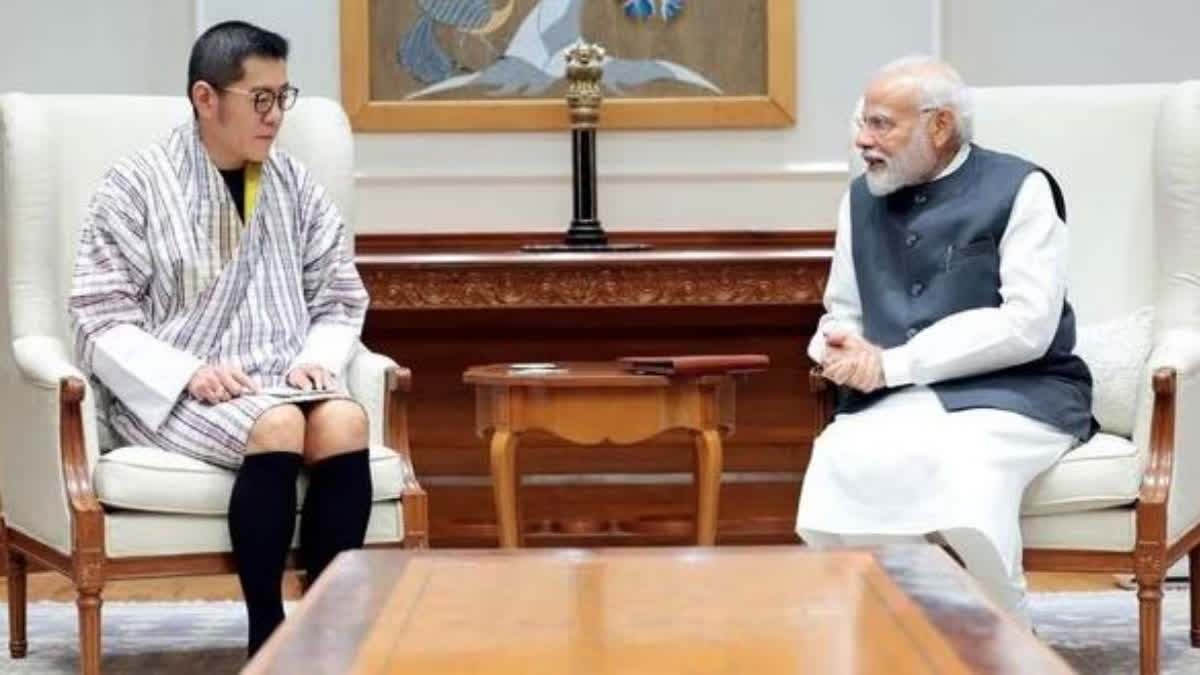New Delhi: The Gelephu Special Administrative Region (SAR) called the Gelephu Mindfulness City announced by Bhutan’s King Jigme Khesar Namgyal Wangchuk on the occasion of the Himalayan kingdom’s National Day is expected to be a game-changer for the region facilitating productive flow of capital and knowledge.
Gelephu Mindfulness City will be developed in Sarpang district of Bhutan bordering Chirang district in India’s northeastern state of Assam. Gelephu is one of three entry points to Bhutan from India, the others being Samdrup Jongkhar to its east and Phuntsholing to its west. During his National Day speech, Wangchuk said that South Asia is experiencing an unprecedented economic transformation.
“This is a period of growth and a period of immense opportunities for our region, which is home to around two billion people,” the website of The Bhutanese newsweekly quoted him as saying. “The land connection from Gelephu or Samdrup Jongkhar through Assam and northeast Indian states, to Myanmar, Thailand, to Cambodia and Laos, Vietnam, Malaysia and Singapore, is a vibrant economic corridor linking South Asia to Southeast Asia.”
This ambitious initiative, covering approximately 1,000 sq km from Taraythang Gewog to Singye Gewog in the Himalayan foothills, seeks to elevate Gelephu into a prosperous economic centre, not only benefitting Bhutan but also contributing to the broader South Asian region. In his address, Wangchuck highlighted the vision for the Gelephu SAR, recognising the influence of Bhutanese individuals living abroad in propelling the nation toward unprecedented socio-economic advancement. This commitment underscores the government’s dedication to harnessing the potential of its global diaspora.
Wangchuk said that the Gelephu SAR, as an economic hub, will have the autonomy to formulate laws and policies that are needed. It will have executive autonomy and legal independence. “The purpose of establishing this SAR is to create a vibrant economic hub,” the Monarch said. “There are economic hubs elsewhere that invite foreign investment by providing a conducive business environment and compelling incentives. Bhutan’s economic hub will offer all that and more.”
He further stated that it will be one-of-a-kind, anchored on the vision and values of the globally acclaimed Gross National Happiness (GNH). “It will be a Mindfulness City, encompassing conscious and sustainable businesses, inspired by Buddhist spiritual heritage, and distinguished by the uniqueness of the Bhutanese identity,” he said.
According to the Monarch, there will be a screening process to ensure that the companies and people who come to Gelephu are sensitive to Bhutanese culture and traditions, respect Bhutanese identity, and share Bhutan’s values. All businesses will be invitation-based, and Bhutan will select only those that are most beneficial for the country and people.
Wangchuk stressed that the success of the Gelephu project will depend on three priority areas – energy, connectivity and skills upgradation. Highlighting that Bhutan needs to further expand its energy sector, he said that all available energy sources, including solar, wind, thermal and hydropower need to be tapped. "Considering our current expertise, we need to enhance the installed capacity of hydropower by expediting the construction of projects such as Kholongchu, Chamkharchu, Dorjilung, Nyera Amari, Wangchu, Bunakha and Sunkosh, for which detailed project reports (DPRs) are ready,” he said. “Our electricity prices should be among the most competitive in the region so that our hydro resources are not just a source of revenue, but also an enabler of other investments.”
